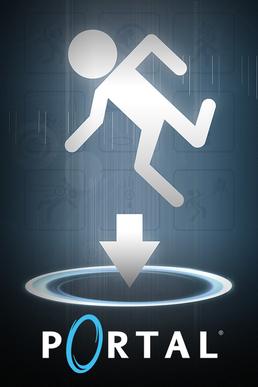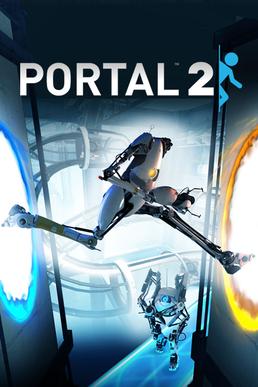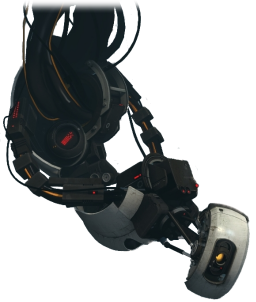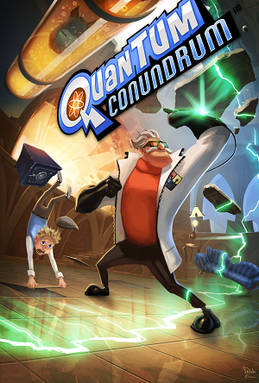
Valve Corporation, also known as Valve Software, is an American video game developer, publisher, and digital distribution company headquartered in Bellevue, Washington. It is the developer of the software distribution platform Steam and the game franchises Half-Life, Counter-Strike, Portal, Day of Defeat, Team Fortress, Left 4 Dead, and Dota.
Source is a 3D game engine developed by Valve. It debuted as the successor to GoldSrc in 2004 with the releases of Half-Life: Source, Counter-Strike: Source, and Half-Life 2. It is most well-known for its usage by Valve, but the engine has been used both by small teams and individuals to create modifications of Valve games, and other studios creating distinct games, notably Troika Games' title Vampire: The Masquerade – Bloodlines. Valve continued to create incremental updates to the Source engine after its 2004 release, most of which coincided with games created by Valve. In the late 2010s, Valve created the Source 2 engine to replace Source, with it publicly debuting alongside Half-Life: Alyx. The Source engine is most well-known for its advancements in physics, AI, and graphics.

Turtle Rock Studios is an American video game developer founded in March 2002 by Michael Booth. It was acquired by Valve in 2008, but was re-founded in 2010 as a subsidiary of Slamfire Inc. by Phil Robb and Chris Ashton. Turtle Rock Studios is involved in the creation of original titles as well as the provision of consulting services to the digital entertainment industry.
Narbacular Drop is a 2005 puzzle-platform game developed by Nuclear Monkey Software. It was the senior game project of students attending DigiPen Institute of Technology. The gameplay consists of navigating a dungeon using an innovative portal system. The player controls two interconnected portals that can be placed on any non-metallic surface. Gabe Newell, managing director of Valve, took interest in the team's work and employed the whole staff at Valve. The developers went on to develop the critically acclaimed Portal using many of the same concepts.

Portal is a 2007 puzzle-platform game developed and published by Valve. It was released in a bundle, The Orange Box, for Windows, Xbox 360 and PlayStation 3, and has been since ported to other systems, including Mac OS X, Linux, Android, and Nintendo Switch.

The Weighted Companion Cube is a fictional item featured in the Portal series of video games by Valve Corporation. Initially featured in a single level of the original Portal, Test Chamber 17, as one of Aperture Science's ubiquitous Weighted Storage Cubes with heart symbols printed on the outside, it is given to the game's main character, Chell, as part of the antagonist GLaDOS's sinister testing initiative. After carrying it through the entire level and ostensibly anthropomorphizing and "bonding" with the Cube, the malevolent AI forces her to unceremoniously dispose of it in an incinerator device. Companion Cubes later re-appear in the game's sequel with a slightly different design. The original Companion Cube is shown to have survived the events of both Portal and Portal 2, appearing as part of an ending gag.

Portal 2 is a 2011 puzzle-platform game developed by Valve for Windows, Mac OS X, Linux, PlayStation 3, and Xbox 360. The digital PC version is distributed online by Valve's Steam service, while all retail editions were distributed by Electronic Arts. A port for the Nintendo Switch was included as part of Portal: Companion Collection.
Airtight Games was an American independent video game developer based in Redmond founded in 2004. It was made up of former members of FASA Studio, Will Vinton Studios and Microsoft, as well as several other studios, with key members included president and creative director Jim Deal, art director Matt Brunner, and co-founder Ed Fries.

Corrinne Yu is an American game programmer. She has worked on games including King's Quest, Quake II, and Halo 4. Her engine work included Unreal Engine 3, Microsoft's Direct3D Advisory Board, and CUDA and GPU simulation at Nvidia. She has also designed accelerator experiments for nuclear physics research.

GLaDOS is a fictional character from the video game series Portal. The character was created by Erik Wolpaw and Kim Swift and voiced by Ellen McLain. GLaDOS is depicted in the series as an artificially superintelligent computer system responsible for testing and maintenance in the Aperture Science Computer-Aided Enrichment Center in all titles. While GLaDOS initially appears in the first game to simply be a voice that guides the player, her words and actions become increasingly malicious as she makes her intentions clear. The second game, as well as the Valve-created comic Lab Rat, reveals that she was mistreated by the scientists and used a neurotoxin to kill the scientists in the laboratory before the events of the first Portal. She is apparently destroyed at the end of the first game but returns in the sequel, in which she is supplanted by her former intelligence dampener and temporarily stuck on a potato battery, while her past as the human Caroline is also explored.

Clint Hocking is a Canadian video game designer and director. He has primarily worked at the Canadian divisions of Ubisoft, where he developed three titles, and briefly worked at LucasArts, Valve, and Amazon Game Studios.
Tag: The Power of Paint is a 2008 puzzle-platform game. The game was developed for Microsoft Windows by Tag Team, a group of students from the DigiPen Institute of Technology. The game's core mechanics is the use of a special paint sprayed from the player's paint gun to impart physical properties to surfaces, which, in turn, affect the user's movement. Tag won the Independent Games Festival Student Showcase award in the same year. The project team was hired by Valve, using the concepts of Tag as new puzzle elements in their game Portal 2.

Robin Hunicke is an American video game designer and producer. She is a professor of game design at UC Santa Cruz and the co-founder of Funomena.

Chet Faliszek is an American video game writer who has worked for companies like Valve and Bossa Studios, having been involved in the story writing for series such as Half-Life, Portal, and Left 4 Dead.
Portal is a series of first-person puzzle-platform video games developed by Valve. Set in the Half-Life universe, the two main games in the series, Portal (2007) and Portal 2 (2011), center on a woman, Chell, forced to undergo a series of tests within the Aperture Science Enrichment Center by a malicious artificial intelligence, GLaDOS, that controls the facility. Most of the tests involve using the "Aperture Science Handheld Portal Device" – nicknamed the portal gun – that creates a human-sized wormhole-like connection between two flat surfaces. The player-character or objects in the game world may move through portals while conserving their momentum. This allows complex "flinging" maneuvers to be used to cross wide gaps or perform other feats to reach the exit for each test chamber. A number of other mechanics, such as lasers, light bridges, high energy pellets, buttons, cubes, tractor funnels and turrets, exist to aid or hinder the player's goal to reach the exit.

Quantum Conundrum is a puzzle-platform game developed by Airtight Games and published by Square Enix. It was directed by Portal lead designer Kim Swift. The game was released for Microsoft Windows via Steam in June 2012, and for PlayStation 3 via PlayStation Network, and Xbox 360 via Xbox Live Arcade in July 2012.

Chris Remo is an American video game designer, composer, writer, podcaster, and former journalist.
Motive Studio is a Canadian video game developer and studio of Electronic Arts (EA) based in Montreal.

Amazon Games is an American video game company and division of the online retailing company Amazon that primarily focuses on publishing video games developed within the company's development divisions.













